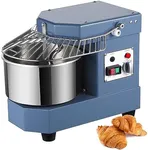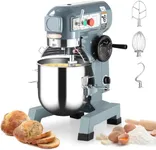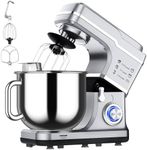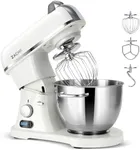Buying Guide for the Best Dough Mixer For Home Use
Choosing the right dough mixer for home use can make a significant difference in your baking experience. A good dough mixer can save you time and effort, ensuring that your dough is mixed thoroughly and consistently. When selecting a dough mixer, it's important to consider several key specifications to ensure you get the best fit for your needs. Here are the main factors to consider and how to navigate them.CapacityCapacity refers to the amount of dough the mixer can handle at one time. This is important because it determines how much you can bake in a single batch. Mixers typically come in various capacities, ranging from small (3-4 quarts) to large (6-8 quarts or more). If you bake occasionally or in small quantities, a smaller capacity mixer should suffice. However, if you bake frequently or in large batches, a larger capacity mixer would be more suitable.
PowerPower is measured in watts and indicates the strength of the mixer's motor. This is crucial because a more powerful motor can handle heavier doughs and larger quantities without straining. Mixers with lower power (200-300 watts) are suitable for light doughs and occasional use. Medium power (300-500 watts) is good for regular home baking, while high power (500+ watts) is ideal for heavy doughs and frequent use. Consider your baking habits and the types of dough you will be mixing to choose the right power level.
Speed SettingsSpeed settings allow you to control the mixing process, which is important for achieving the right consistency for different types of dough. Most mixers come with multiple speed settings, typically ranging from 3 to 12. Basic mixers may have fewer settings, which are sufficient for simple recipes. More advanced mixers offer a wider range of speeds, providing greater control for complex recipes. If you bake a variety of goods, a mixer with more speed settings will offer better versatility.
AttachmentsAttachments are additional tools that come with the mixer, such as dough hooks, beaters, and whisks. These are important because they expand the functionality of the mixer, allowing you to perform different tasks. Basic mixers may come with just a few attachments, while more advanced models offer a wider range. Consider the types of baking you do and choose a mixer with attachments that will be most useful for your needs. For example, if you make a lot of bread, a dough hook is essential.
Build QualityBuild quality refers to the materials and construction of the mixer. This is important because a well-built mixer will be more durable and reliable. Mixers made with metal components and sturdy construction are generally more durable than those made with plastic parts. If you plan to use the mixer frequently, investing in a higher quality build will ensure it lasts longer and performs better. Look for mixers with solid construction and good reviews on durability.
Ease of CleaningEase of cleaning is an important consideration because it affects how much effort you need to put into maintaining the mixer. Mixers with detachable parts that are dishwasher safe are easier to clean. Some mixers have smooth surfaces and fewer crevices, making them easier to wipe down. If you want to minimize cleaning time, look for a mixer with easy-to-clean features. This will make your baking experience more enjoyable and less time-consuming.
Noise LevelNoise level refers to how loud the mixer is during operation. This is important if you are sensitive to noise or if you have a household where noise can be disruptive. Mixers with lower noise levels are more pleasant to use, especially if you bake frequently. If noise is a concern for you, look for mixers that are specifically designed to operate quietly. Reading user reviews can also give you an idea of the noise level of different models.
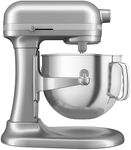

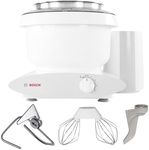
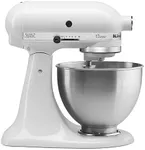
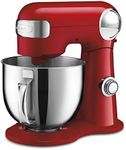


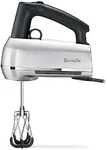
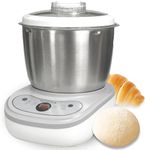

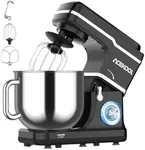

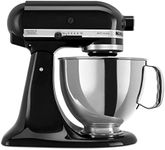
![Neretva Stand Mixer, [6.34QT& 6-Speed& 400W] Mixers Kitchen Electric Stand Mixer Lightweight& Large Capacity& LED Display Kitchen Mixer with Whisk, Flat Beater, Dough Hook](https://images-proxy.bestreviews.guide/xIiv9G7II8d4XYwdaR78j6E1F0A=/0x150/https://m.media-amazon.com/images/I/41AwGK5iS5L._AC_CX679_.jpg)
